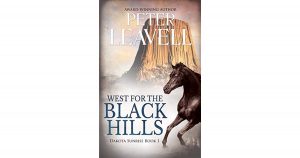by Peter Leavell, @PeterLeavell
Professor Leavell steps into the classroom and sets down his briefcase. He adjusts his notes (which are included here) on the podium, adjusts his glasses, and begins his lesson.
An author must command three things to make writing a novel possible.
Theoreticians posit a fourth law which involves chocolate, tea, and a safe room with proper sound barriers, but the theory is not part of the canonized big three.
- Physics: The author must have a physical instrument with which to write. He or she must also have a location. For example, pencil and paper at the kitchen table have been a tried-and-true method for millennia. A stick against the prison wall has also served the writer well. Today, we have laptops in coffee shops. No matter, the author must have a tangible relationship to the physics of writing.
- A Code: The author must have a personal code with which to live by. Based on his or her beliefs, the writer creates his or her own moral code within the text. Dichotomies of right and wrong in literature bank heavily on natural law, the fact that basic morality is written into our hearts and minds. The best writers search their hearts for their personal beliefs, then reflect them into the text. If there is no personal code in the writer, then there is no code of ethics in the novel and the story will not give the reader satisfaction.

- Tension: Simply put, the characters must want something and they are stopped from getting it. You must put time and space between the characters and what they desire. Why? Because the biggest faux pas is to be boring. The new genre of no-tension novels still has tension. In those novels, characters say something, and time and space force the reader to wait for the reaction. Thankfully, another character responds, giving the dialogue a happy ending. Without tension, you do not have a story. You have paragraphs on paper.
Yes, I see a hand up in the back.
Professor, what do you see as a central theme in all the great literature books?
Ah, you want to know the secret behind what will make your book sell. Well, in my experience, the best books build on the tensions within the social classes and the struggle between them, based on the moral code of the author. Read great novels and see if you can spot the elements of social unrest or pressures on the characters. The formula of rags to riches, then back to rags and a moral lesson, then riches again, is a sure seller.
Professor, are you Marxist?
No. Marx knew the secret that adding social classes to your book sells well, and so that’s how he became successful. That’s the bell. Class dismissed. Quiz on Friday.
Philip Anderson keeps his past close to the vest. Haunted by the murder of his parents as they traveled West in their covered wagon, his many unanswered questions about that night still torment him.
His only desire is to live quietly on his homestead and raise horses. He meets Anna, a beautiful young woman with secrets of her own. Falling in love was not part of his plan. Can Philip tell her how he feels before it’s too late?
With Anna a pawn in the corrupt schemes brewing in the nearby Dakota town, Philip is forced to become a reluctant gunslinger. Will Philip’s uncannily trained horses and unsurpassed sharpshooting skills help him free Anna and find out what really happened to his family in the wilderness?

Peter Leavell, a 2007/2020 graduate of Boise State University with a degree in history and a MA in English Literature, was the 2011 winner of Christian Writers Guild’s Operation First Novel contest, and 2013 Christian Retailing’s Best award for First-Time Author, along with multiple other awards. An author, blogger, teacher, ghostwriter, jogger, biker, husband and father, Peter and his family live in Boise, Idaho. Learn more about Peter’s books, research, and family adventures at www.peterleavell.com


